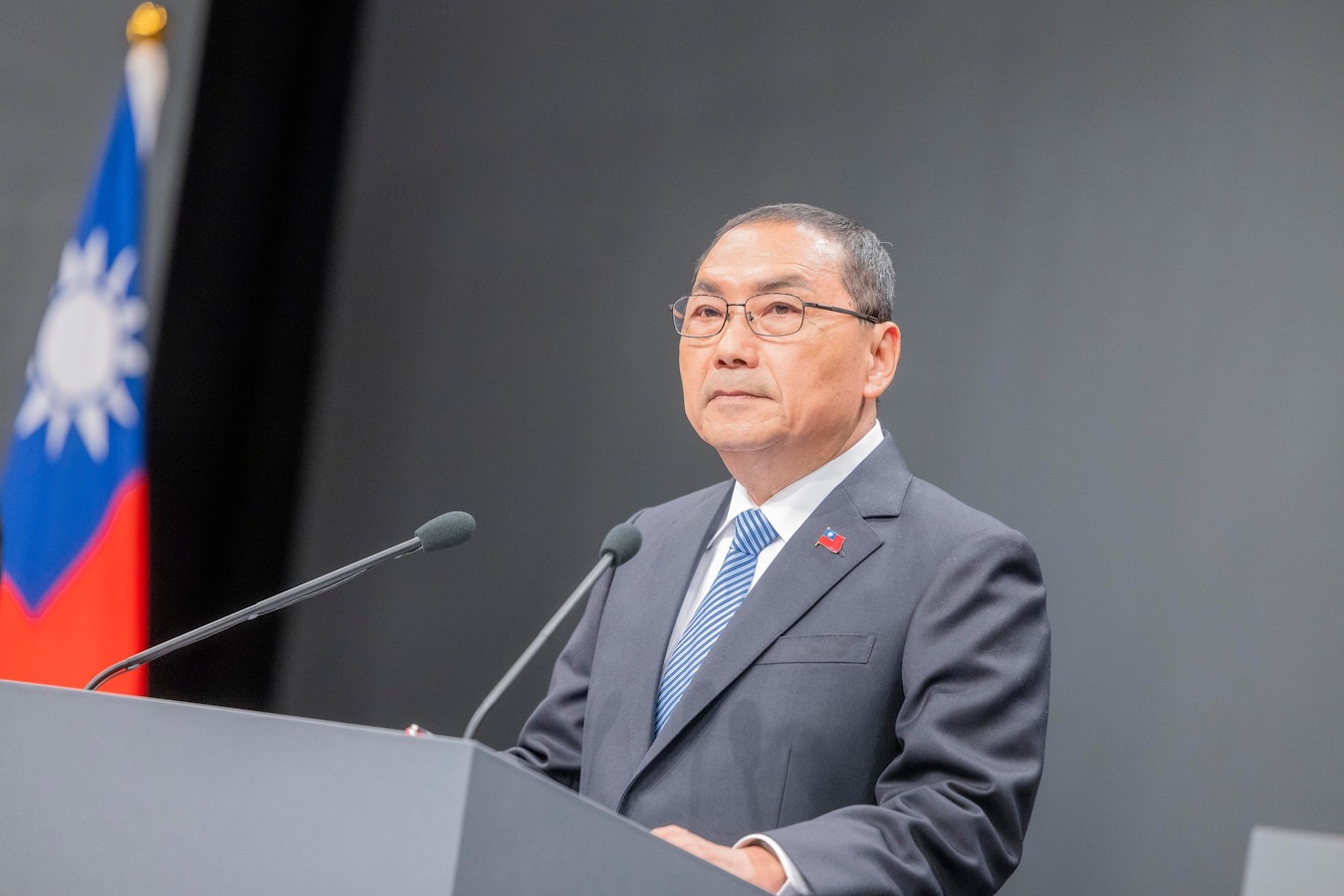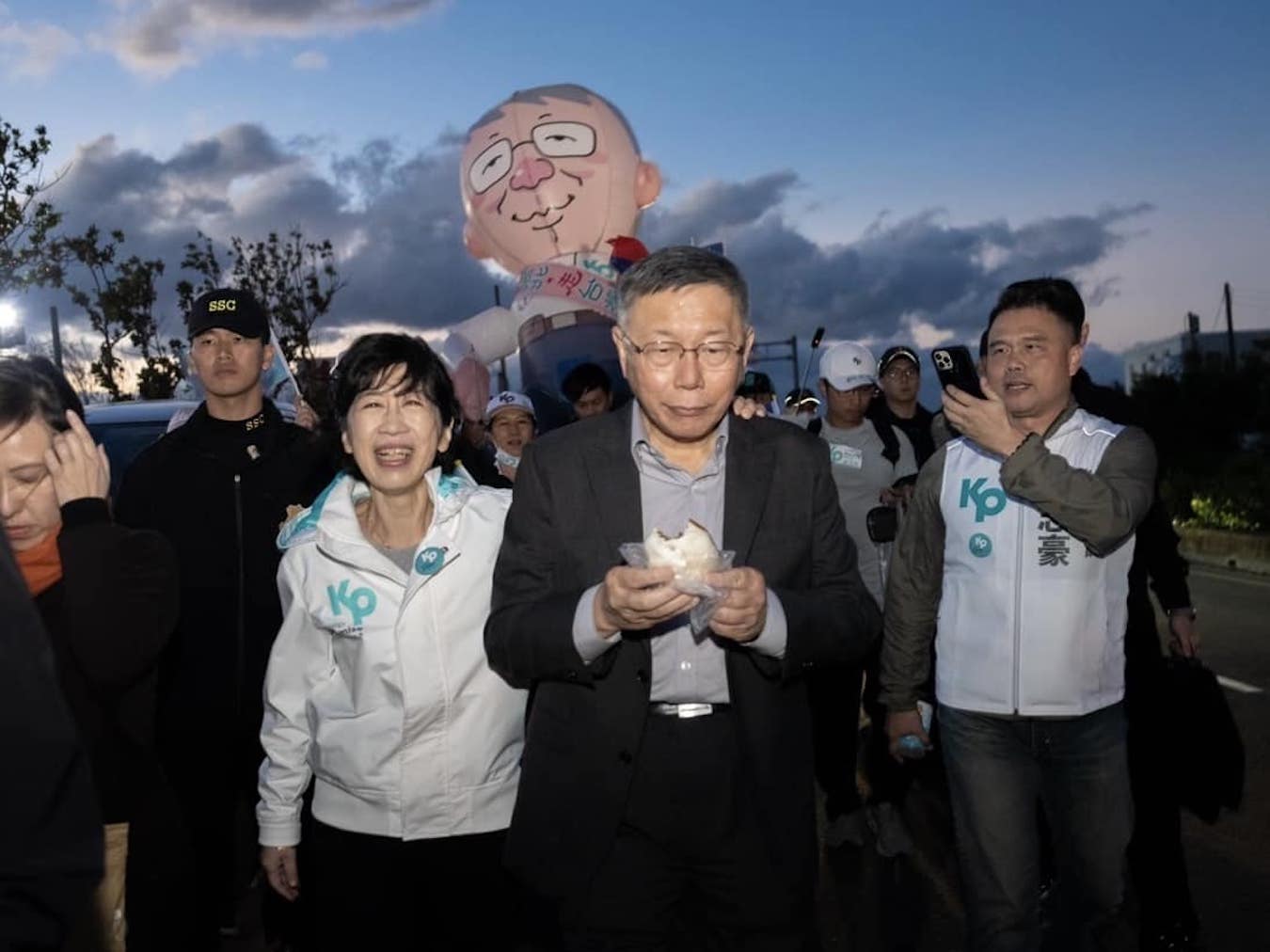by Brian Hioe
語言:
English
Photo Credit: Lai Ching-te/Facebook
WITH LESS THAN twenty days left until elections next month, the race has largely come down to a competition between Lai Ching-te of the DPP and Hou You-yi of the KMT. At this stage in the election, candidates have taken to attacks on each other hoping to magnify scandals of the other candidates. One notes that a number of these scandals revolve around similar themes.
In particular, Lai has come under fire for a residence owned by his family that opponents claim is an illegal structure. By contrast, Lai has responded that this structure was not illegally built, but was inherited from a time of differing construction regulations. As such, Lai contends that the residence is not a “mansion” as his opponents claim, but a miner’s residence inherited from his father–a miner who died in an accident when Lai was two years old.
Views on the structure have divided along partisan lines, with the DPP contending against the New Taipei government–controlled by the New Taipei mayoral administration led by Hou You-yi. Nevertheless, the controversy has led to some social discussion of Taiwan’s economic development, in which groups such as miners took great personal risks in contributing to said development, but were often housed in ramshackle structures that were later declared to be illegal by the government. This is to be contrasted with the priority that the government put on housing groups such as members of the military and their dependents.
 Hou You-yi. Photo credit: Hou You-yi/Facebook
Hou You-yi. Photo credit: Hou You-yi/Facebook
Likewise, targeting Lai over a purported “mansion” owned by his families would be an attempt to reverse charges by the pan-Green camp against wealthy KMT politicians such as Yen Kuan-heng. Yen, who hails from a Taichung-based KMT political dynasty known for links to organized crime and religion, came under fire in past years for a mansion built on protected land. This fits with the pattern of the KMT attempting to accuse the DPP of charges similar to those that it has faced in recent times, but leaning into such attacks could perhaps backfire for the KMT if they are unable to make such charges stick to Lai and actions by KMT politicians seem worse by comparison.
In response, Lai has provided documentation and showed his house to reporters, with his mother publicizing her struggle to raise six children as a miner’s widow. Lai also pledged to donate the land to build a museum to the history of miners in Taiwan. But the pan-Green camp has also sought to criticize pan-Blue politicians for properties they own, so as to deflect criticism away from Lai.
As such, Hou You-yi has come under fire for a student dormitory that he owns, which the DPP has accused of draining resources from students. The DPP has called attention to the expansion of the dormitory and its division into 99 addresses, suggesting that Hou is evading taxes using loopholes in the law, and that rents have dramatically increased from 18,200 NT per semester to 16,000 NT per month. Consequently, the DPP has alleged that this shows the hypocrisy of Hou’s claims to support housing justice.
Similarly, Ko Wen-je has come under fire for farmland that he jointly owns which is being used as a parking lot for buses, apparently illegally. Ko responded to such criticisms by stating that he has little to do with the management of the farmland and excavating the parking lot. But as concrete, brick, and apparent construction materials were unearthed in the excavation, this led to allegations that illegal dumping may have taken place. Ko has threatened to sue those that continue to raise the issue.
 Ko Wen-je (center). Photo credit: Ko Wen-je/Facebook
Ko Wen-je (center). Photo credit: Ko Wen-je/Facebook
Ko has otherwise promised to donate income from the parking lot to charity, not unlike Lai promising to donate his family home to create a museum. Hou originally shrugged off calls to donate the dormitory owned by his family, claiming that it was built legally so there was no need to do so. Later on, Hou changed his tune, stating that the building would be converted into social housing.
In the meantime, property is not the only issue that candidates have traded barbs over on similar grounds. A number of the vice presidential candidates of the current election cycle have, notably, had ties to the US. This includes DPP vice presidential candidate Hsiao Bikhim, who has an American parent, Terry Gou’s vice presidential candidate Tammy Lai, who also had an American parent, and TPP presidential candidate Cynthia Wu, who too is a US citizen. Lai and Wu both faced questions over whether they would be able to give up their US citizenship in time to run, while Hsiao was criticized as an “American” by the KMT.
Namely, this takes place at a time that the pan-Blue camp has increasingly leaned into discourse aimed at sowing skepticism about the reliability of the US in wartime or emphasizing conflicts of interest between the US and Taiwan. More recently, after her weak performance in the vice presidential debate, Cynthia Wu has come under fire for her distinctively American speaking style in Mandarin. Still, this proves another way in which there is some convergence between candidates, even as they have sought to attack each other along similar grounds.

